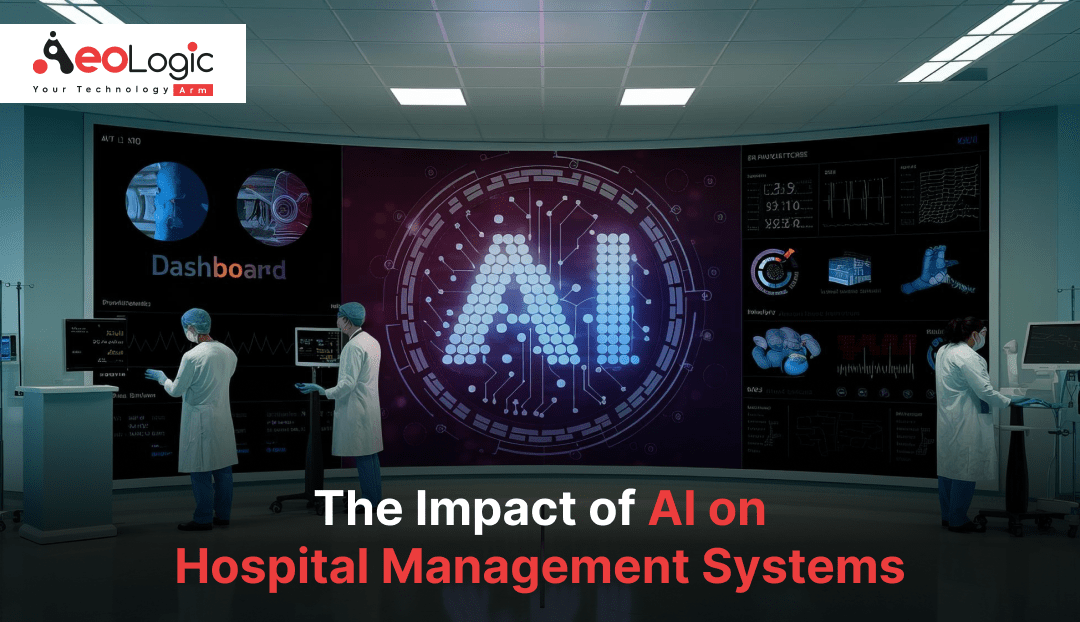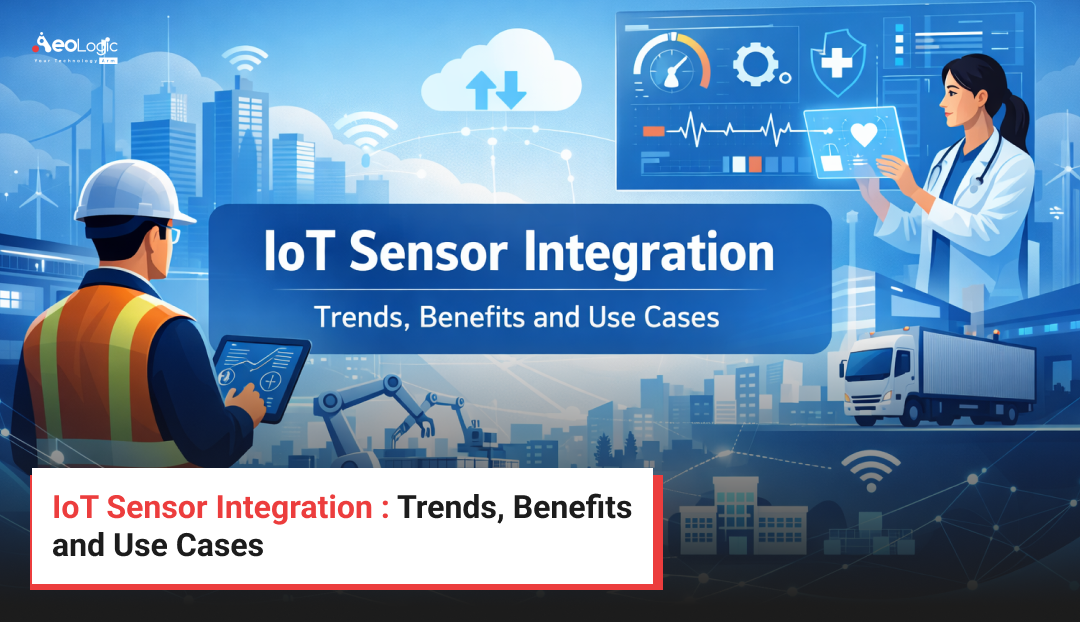Technology is involved in every industry as well as the medical sector. Hospitals are the ones who need to manage their management system very efficiently as this industry deals with the lives of people. As mentioned earlier, technology is everywhere so there is hospital management system software that was developed to manage electronic medical records, laboratory tests and their results, radiology images, pharmacy records, etc. Hospital Management System Software Market size was valued at USD 28.4 Billion in 2023 and is projected to reach USD 57.1 Billion by 2030, growing at a CAGR of 10.5% during the forecast period 2024-2030. This shows the dominance of the hospital management system in today’s medical industry.
Overview
Still, the hospital management system cannot provide service at its full potential as there is no capability to perform predictive analysis and data analysis. Predictive maintenance and other advancements can make things easier. Custom IT solutions for healthcare management systems can integrate big technologies to enhance the efficiency of patient care and streamline other critical aspects. Nowadays, many hospitals have implemented Artificial Intelligence in their hospital management systems, as this technology has the potential to significantly increase the system’s capabilities.
Through predictive analytics, remote monitoring, and continuous learning, artificial intelligence (AI) revolutionizes hospital management systems, increasing productivity, cutting costs, and enabling individualized treatment. It also optimizes resource use and enhances patient outcomes. The overall global artificial intelligence (AI) in healthcare Market size was USD 19.27 billion in 2023, estimated at USD 26.69 billion in 2024, and is anticipated to reach around USD 613.81 billion by 2034, expanding at a CAGR of 36.83% from 2024 to 2034. This shows how fast AI is evolving in the healthcare industry.
In this article, we will see the impact of AI on enhancing the hospital management system and we will also see some other details like benefits, challenges, etc. In the end, we will present a conclusion on the whole discussion.
What Does AI on Hospital Management Systems Refer To?
What does a hospital management system mean? Hospitals can manage data and information about patients, providers, processes, and other topics by using a hospital management system, which helps to guarantee that procedures are carried out efficiently and quickly. Hospital management systems already have capacities beyond human thought with the implementation of AI. Its sophisticated features enable it to address problems in healthcare. reduces the complexity of the patient’s medical procedure and makes it more time-efficient. AI can also optimize many other aspects of hospital management, including administrative processes, clinical decision-making, and patient engagement.
How Can AI Make An Impact on Hospital Management Systems?
Artificial intelligence (AI) has the potential to improve hospital management systems and yield better outcomes by optimizing resource allocation, streamlining operations, and improving patient care through predictive analytics and automation. There are a lot of operations that gather a lot of data and need to make insights using that data. Manually analyzing data could be a time-consuming process and AI can do it in a few minutes. There are many other benefits that we will see in the upcoming paragraph.
Also Read: Trends In Care Management Solutions for Future Healthcare
Benefits of AI On Hospital Management Systems
There are many benefits of AI for enhancing hospital management systems as here are a few key benefits mentioned below.
#1. Predictive Insights for Better Becision-Making
Predictive analytics and insights are very important for better decision-making. Without proper and rapid analysis of data, it is not possible to make quick decisions. There must not be late in any patient’s treatment but sometimes it holds for insights. AI’s ability to analyze data and extract useful information can be very helpful for patients’ quick decisions. This proves helpful in enhancing the hospital management system.
#2. Early Disease Detection and Prevention
Early detection of diseases and prevention as soon as possible is very important before it’s too late. But sometimes making reports from diagnosis with the hospital management system could be a long process. Through the processing of vast volumes of data and the identification of intricate patterns within it, AI and ML algorithms aid in the early detection of disease. Medical imaging such as MRIs and X-rays can be analyzed using artificial intelligence in the diagnosing process.
#3. Improved Operational Efficiency
Artificial intelligence systems possess the ability to scan patient data and past trends in real-time, enabling them to predict patient flow. Clinic directors might find it easier to allocate resources and personnel more effectively. Furthermore, with stock management support, AI-based predictive analytics can boost operational productivity. Overall, AI can enhance the operational efficiency of hospital management systems.
#4. Remote Patient Monitoring
Remote patient monitoring is one of the trending things in the healthcare industry, especially with IoT Solutions. Patients cannot always stay in the healthcare environment, but it is also important to take care of them remotely. AI can enhance remote patient monitoring more than ever. AI algorithms, combined with IoT Solutions, continuously analyze patient data to identify subtle changes in vital signs or symptoms that may indicate potential health risks. By alerting healthcare providers promptly, interventions can be implemented at the earliest stage.
#5. Personalized Medicine
Comprehensive patient data, including genetic information, medical records, and lifestyle factors, can be processed by AI algorithms to provide personalized medicinal treatment.AI systems can process vast volumes of patient data, including genetic data, medical records, and lifestyle factors, to provide personalized treatment recommendations. This increases the productivity of the hospital management system.
Challenges With AI For Hospital Management Systems
We have seen a lot of benefits of AI for hospital management systems but there are a few challenges too as there are few mentioned below.
- Data privacy is a very serious issue with AI as hospital management systems consist of vast amounts of data regularly. So it could be a misuse of patients’ data anytime that can prove risky in many terms.
- The public’s and healthcare professionals’ resistance to adoption stems from a lack of confidence in AI-generated advice. This can also be a challenge to the implementation of AI for hospital management systems.
- The initial implementation cost of AI in hospital management systems can be too costly so it is also a challenging thing.
Also Read: Custom Kiosk Software Development Solutions For Healthcare Industry
Final Words
The introduction of AI into the healthcare sector has unlocked a new era of healthcare delivery marked by increased operational efficiency, lower costs, individualized care, remote patient monitoring, continuous learning, and improvement. Healthcare centers can provide efficient resource allocation, provide authoritative errands with ease, provide demonstrable accuracy, and provide effective online patient care by utilizing AI control. The hospital management system is the most beneficial aspect of AI. AI can alter patient care and hospital administration software as it develops. Without question, it will continue to advance and influence healthcare in ways that were previously unthinkable.

I’m Deepika Pandey, an SEO strategist and content writer with 6+ years of experience. I create SEO-friendly content that drives traffic and engages readers. I combine data insights with creativity to help businesses grow their online presence effectively.







